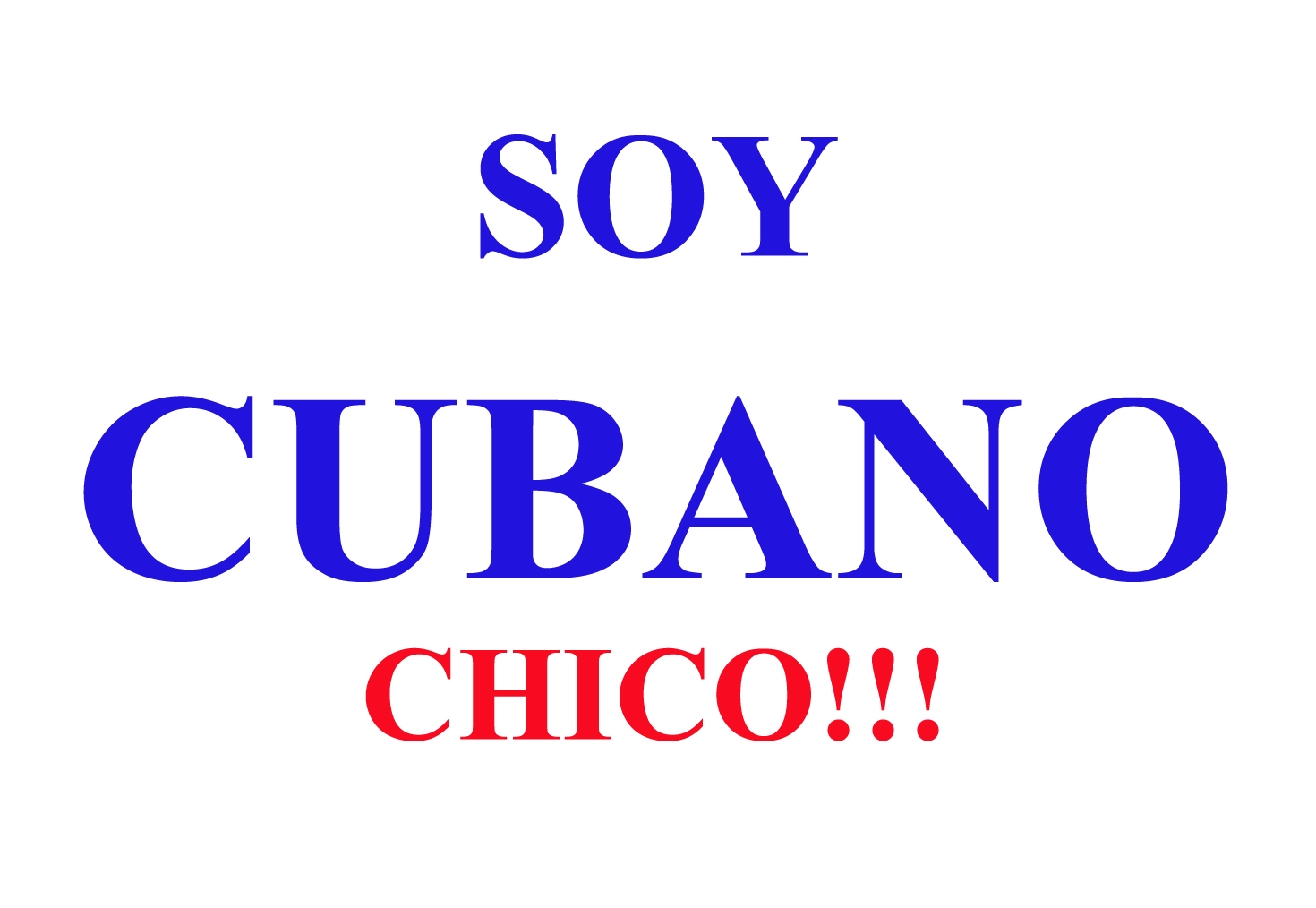Soy Cubano is more than just a phrase; it's a declaration of identity, pride, and cultural richness that resonates with the heart of Cuba and its people. This expression encapsulates the essence of being Cuban, reflecting a deep connection to the island's history, traditions, and vibrant way of life. As the world continues to evolve, the significance of embracing one's roots grows, making "soy cubano" a powerful rallying cry for Cubans and those of Cuban descent around the globe.
Cubans are known for their resilience, creativity, and passion, qualities that are deeply woven into the fabric of their identity. From the rhythmic beats of salsa music to the tantalizing flavors of traditional cuisine, being Cuban is synonymous with a zest for life. The phrase "soy cubano" embodies this spirit, serving as a reminder of the values and customs that define Cuban culture, even amidst challenges and changes.
In this article, we will explore the multifaceted identity of being Cuban, touching on aspects such as its rich history, cultural practices, and the global Cuban community. We will also delve into how the phrase "soy cubano" has become a source of pride for many, symbolizing not just a geographical origin but a collective identity that transcends borders.
What Does It Mean to Be Soy Cubano?
Being "soy cubano" means embracing a rich tapestry of history, culture, and identity. Cubans take pride in their heritage, which is influenced by a blend of indigenous, African, and Spanish roots. This unique fusion is evident in various aspects of Cuban life, from music and dance to art and cuisine. The phrase itself encapsulates a sense of belonging and a commitment to preserving the traditions passed down through generations.
How Has Cuban Culture Evolved Over Time?
Cuban culture is dynamic and ever-evolving, influenced by historical events, social changes, and global interactions. The Cuban Revolution of 1959 marked a significant turning point, leading to an era of artistic expression that flourished despite political restrictions. Today, Cubans continue to innovate, blending traditional elements with modern influences to create a vibrant cultural scene that resonates with audiences worldwide.
What Are the Key Elements of Cuban Identity?
The Cuban identity is characterized by several key elements:
- Language: Spanish is the official language, and it plays a crucial role in shaping cultural expression.
- Music: Genres like son, salsa, and mambo reflect the island's diverse influences and are integral to social life.
- Cuisine: Traditional dishes such as Ropa Vieja and Moros y Cristianos showcase the island's culinary heritage.
- Family: Strong familial bonds and community ties are central to Cuban life.
Who Are Some Notable Cubans?
Throughout history, many individuals have shaped the Cuban narrative, from political figures to artists. Their contributions highlight the diverse talents and perspectives within the Cuban community. Notable Cubans include:
What Is the Biography of a Famous Cuban Figure?
One prominent figure who embodies the spirit of "soy cubano" is Celia Cruz, the "Queen of Salsa". Her life and career were marked by passion, resilience, and an unwavering commitment to her Cuban roots.
| Attribute | Details |
|---|---|
| Name | Celia Cruz |
| Date of Birth | October 21, 1925 |
| Place of Birth | Havana, Cuba |
| Occupation | Singer, Actress |
| Genres | Salsa, Son, Latin Pop |
| Date of Passing | July 16, 2003 |
How Did Celia Cruz Influence Cuban Music?
Celia Cruz's influence on Cuban music is immeasurable. With her powerful voice and charismatic stage presence, she popularized salsa music globally and became a symbol of Cuban cultural identity. Her songs often celebrated the spirit of Cuba, and her legacy continues to inspire new generations of artists.
How Is the Global Cuban Community Connected?
The global Cuban community is a testament to the enduring nature of "soy cubano". Cubans and those of Cuban descent have established vibrant communities in various countries, particularly in the United States, Canada, and Spain. These communities serve as cultural hubs, preserving traditions and sharing Cuban heritage through festivals, music, and cuisine.
What Are Some Celebrations of Cuban Culture Around the World?
Celebrations of Cuban culture abound across the globe, showcasing the richness of "soy cubano". Some notable events include:
- Cuban Carnival: A vibrant celebration featuring music, dance, and colorful parades in cities like Havana.
- International Salsa Festival: Held in various locations, these festivals celebrate the dance and music that define Cuban culture.
- Cuban Food Festivals: Events dedicated to showcasing traditional Cuban dishes and culinary innovations.
How Does "Soy Cubano" Impact Personal Identity?
The phrase "soy cubano" holds profound significance for individuals, shaping their sense of self and belonging. For many, it serves as a bridge connecting them to their heritage, fostering pride in their roots, and encouraging them to share their culture with others. Embracing this identity can empower individuals to advocate for their community and contribute positively to society.
Conclusion: What Does It Mean to Embrace "Soy Cubano"?
In conclusion, "soy cubano" is a powerful declaration of identity that encapsulates the rich history, culture, and resilience of the Cuban people. It serves as a reminder of the vibrant traditions that define Cuban life and the enduring spirit that connects Cubans worldwide. Embracing this identity fosters a sense of belonging and pride, encouraging individuals to celebrate their heritage and share it with others.
As the world continues to change, the phrase "soy cubano" remains a source of inspiration, reminding us all of the importance of our roots and the vibrant cultures that shape our identities.
Unlocking The Beauty Of Yummy Hair Extensions
Discovering The Wonders Of Montauk State Park, Missouri
Exploring The Vibrant Atmosphere Of Metro Cafe Diner


